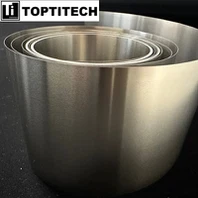Titanium's unique properties-lightweight, high strength, corrosion resistance, and biocompatibility-make it an ideal material for a wide range of civil applications. From healthcare devices to home products and environmental solutions, titanium is helping improve quality of life.

Medical and Healthcare Applications
Titanium is widely used in medical devices such as artificial joints, dental implants, and cardiovascular stents. Its biocompatibility and durability make it suitable for long-term implants. Knee prostheses, for example, are commonly made from titanium alloys for reliable performance.
Titanium also enhances wearable healthcare technology. Smart wristbands with titanium or titanium-graphene electrodes offer precise physiological monitoring while remaining lightweight and hypoallergenic, providing comfort and safety for daily use.

Home and Lifestyle Applications
In kitchenware and tableware, titanium's antibacterial and corrosion-resistant features improve hygiene and durability. Products with titanium coatings can effectively reduce bacterial growth while maintaining long-term performance.
Titanium catalysis is also applied in water and air purification. Filters using titanium dioxide nanostructures can break down residual antibiotics or organic pollutants under light, delivering cleaner water and air for households.

Construction and Environmental Applications
Titanium's durability and antimicrobial properties make it ideal for building materials. Architectural panels and façade systems with titanium coatings provide long-lasting protection, reduce maintenance needs, and contribute to energy efficiency.
In environmental technologies, titanium-based materials support air purification and wastewater treatment, effectively decomposing fine particles and organic contaminants to create safer, healthier living environments.
Titanium's versatility spans healthcare, home, and environmental applications, offering reliable, safe, and high-performance solutions for modern life.




